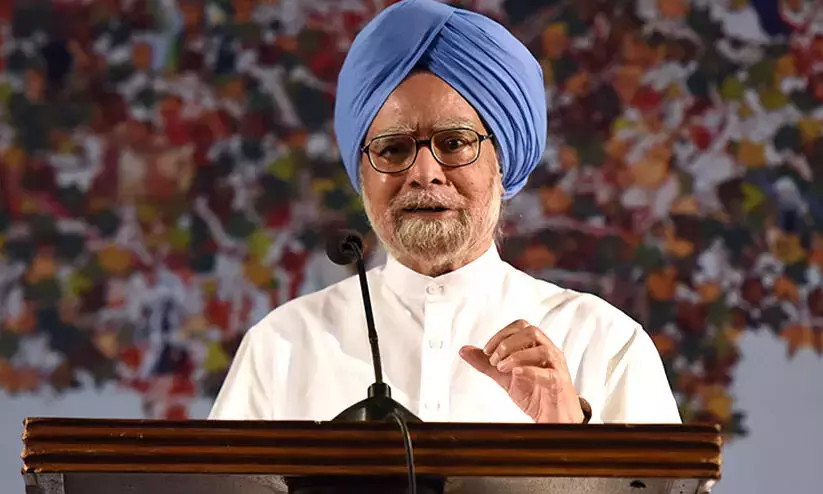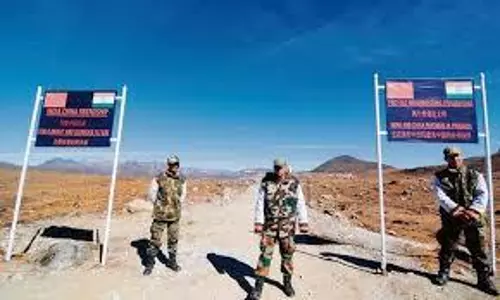
Tesla turns to Chinese data to develop global self-driving system
text_fieldsTesla is advancing plans to use data from its Chinese vehicles to enhance its global self-driving system.
This strategic shift, led by CEO Elon Musk, focuses on artificial intelligence (AI) advancements amid slowing electric vehicle (EV) demand and increasing competition.
Tesla plans to establish a data center in China to train algorithms for autonomous vehicles, according to sources. Previously, Tesla sought approval from Chinese regulators to transfer data generated by its EVs in China out of the country for its "Full Self Driving" (FSD) system. It remains unclear whether Tesla will pursue both data transfer and a local data center or if these plans are concurrent.
This move highlights Tesla's adaptation to capitalize on AI breakthroughs, even as the U.S. government restricts AI technology transfers to China.
Currently, Tesla has not been able to offer the full version of FSD, costing nearly $9,000, in China. Expanding the FSD market in China could significantly boost Tesla's revenue and profits under pressure from Chinese rivals such as BYD. Tesla did not respond to a request for comment.
To develop the FSD system locally, Tesla would need to collaborate with a Chinese partner. Sourcing hardware poses a challenge. Tesla has discussed acquiring graphic processing units for a data center in China with Nvidia. However, U.S. sanctions prohibit Nvidia from selling their most advanced chips to China. Nvidia declined to comment on whether it had held talks with Tesla.
Tesla's push to utilize more data from China accelerated during a recent visit by Musk to Beijing, where he met with officials, including Premier Li Qiang.
Musk sought to ease the process for Tesla's data transfer, and the possibility of investing in a data center in China was discussed. Additionally, Musk considered licensing Tesla’s FSD systems to Chinese EV manufacturers. Previously, Musk mentioned discussions with another "major" automaker about licensing FSD, without specifying the company.
China, the world's largest car market, has an extensive fleet of sensor-equipped cars capable of collecting valuable data from congested urban areas with complex traffic patterns. This makes data generated in China extremely valuable for automakers and AI providers.
Since 2021, Tesla has stored data collected by its Chinese EVs in Shanghai. During this period, Tesla’s China team has worked to secure approvals from Chinese regulators to transfer data out of the country. Under a one-year pilot project, companies in Shanghai's Lingang Area, where Tesla's factory is located, will be allowed to transfer certain data without further security assessments.
Some analysts view Musk's efforts as an attempt to use China as a launchpad for self-driving technology, similar to how Tesla’s 2019 investment in its Shanghai Gigafactory enabled it to become a mass-market EV maker. "It would definitely be a milestone for Tesla if it rolls out FSD in China and leverages the China data for algorithm training," said Yale Zhang, managing director at Shanghai-based consultancy Automotive Foresight.
Many industry experts believe it will take years before fully autonomous cars become commonplace. Currently, driver-assistance features offered in China are "level two" systems, meaning they require a driver ready to take over. Tesla’s FSD and its less advanced Autopilot options are also level-two systems requiring attentive drivers.
More fully automated vehicle fleets operated by companies like Baidu and Pony.ai run in limited test zones. However, Chinese EV manufacturers, including BYD, prioritize self-driving and advanced driver-assist systems. Mercedes and BMW have been granted licenses to test level-three systems in China that allow drivers to take their hands off the wheel and look away on a wider range of roads.
At least five automakers—Hyundai, Mazda, Toyota, Volkswagen, and Nissan—have approval to transfer some of their data out of China, but none of those approvals are for data to be used to train AI systems, according to lawyers, state media reports, and analysts.
When asked about competition from Chinese EV makers during a call with investors after Tesla’s quarterly earnings last month, Musk stated that Tesla should be viewed more as an AI company. He expressed confidence that Tesla’s FSD system would work "pretty well without modification in almost any market." He added that it would perform better with "country-specific" training.






















